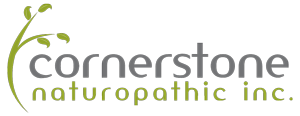Zinc is a trace element, yet an essential mineral, that our bodies require to benefit our eyes, our digestive tract, our skin, our reproduction, our ability to heal wounds and our immune systems to function. It plays an extremely vital role in protein creation and synthesis, which, in addition to amino acids, is a building block for every single process in our bodies. Without zinc, we don’t work as well – it’s a fact.
I have yet to meet someone who doesn’t want clear skin, free from blemishes and acne. But did you also know that zinc is fundamentally important for clear skin? In a recent double-blinded study zinc was found to be just as effective as tetracycline’s in clearing up problematic acne[ii], and people with severe chronic acne were found to have lower levels than those with clearer skin[iii]. One of the reasons it is thought to do so is because of its unique role in wound healing, collagen formation and cell division. Another way that zinc is thought to be beneficial is through its regulation of both vitamin A and our hormones[iv]. Our skin cells replicate at a very quick rate, and when these cells have the nutrients they need our skin blemishes can disappear as new and healthy cells are formed. Zinc also facilitates a process called apoptosis, which is the natural process of cell death. When we have a deficiency in zinc, this process can be delayed, which leads to the dead cells hanging around and getting stuck in our pores[v].
When it comes to reproduction a zinc deficiency by itself isn’t going to impact your fertility, but because zinc is a co-factor for over 300 enzymatic processes in our bodies a deficiency can severely impact the natural processes of the body (including reproduction!). In women, zinc plays an integral role in producing eggs that are ripe for fertilization[vi], maintaining proper fluid levels throughout the reproductive system (which allows the egg to travel via the fallopian tubes to the uterus) and, like we saw with skin, hormones. Taking zinc can help stabilize hormone levels throughout the cycle, ensuring that there is consistency throughout the cycle. In men, appropriate levels of zinc are vital to a man’s ability to get his partner pregnant. Increasing zinc levels in men can boost sperm levels, and improve the form, function and quality of male sperm[vii].
Finally, the role of zinc is important for optimal functioning of your immune system[viii]. Though zinc is a trace element it affects the ability of T cells to function well[ix]. Your T cells are the part of your immune system that control what is known as your adaptive immunity, which is the part of your immune system that recognizes a foreign substance and attacks it. T cells scan your body for foreign invaders, they can directly kill infected cells, they help other immune cells respond to foreign invaders and they remember germs they’ve seen before. T cells can even help eradicate cancer cells, so their ability to function appropriately is very important to your survival. In fact, multiple double-blind placebo controlled trials of daily zinc supplementation showed that zinc reduced the incidence and duration of acute and chronic diarrhea[x],[xi],[xii], and the incidence of acute lower respiratory infections[xiii]. A study by the Toronto Hospital for Sick Kids found that the use of zinc shortened the duration of cold symptoms in adults by two to three days, but that it didn’t have as much of an effect on the duration of cold symptoms in children – and another study found that taking zinc throughout cold and flu season decreased the chances of developing a cold[xiv].
Want to get the most zinc out of your diet? Foods like red meat, poultry, oysters, seafood, beans, nuts and whole grains are high in zinc. Talk to a knowledgeable health care provider before you take zinc supplements, because although we know it has great benefits, too much zinc can actually negatively impact the immune system – and the last thing we want is for you to get sick.
Dr Ben Connolly, ND
[ii] Michaelsson G, Juhlin L, Liunghall K. (1977). A double-blind study of the effect of zinc and oxytetracycline in acne vulgaris. Br J Dermatol. Nov; 97(5):561-566
[iii] Amer, M., Bhagat, MR., Tosson, Z., Abdel Mowla MY., Amer, K. (1982). Serum Zinc in acne vulgaris. Int J Dermatol, 21(8) 481-484
[iv] Truong-Tran AQ, Ho LH, Chai F, Zalewski PD. (2000). Cellular zinc fluxes and the regulation of apoptosis/gene-directed cell death. J Nutr. May;130(5S Suppl):1459S-66S.
[v] Nelson AM, Zhao W, Gilliland KL, Zaenglein AL, Liu W, Thiboutot DM. (2008). Neutrophil gelatinase-associated lipocalin mediates 13-cis retinoic acid-induced apoptosis of human sebaceous gland cells. J Clin Invest;118(4): 1468-78.
[vi] Kim Am, Vogt S, O’Halloran TV, Woodruff TK. (2010). Zinc availability regulates exit from meiosis in maturing mammalian oocytes. Nat Chem Biol. 6(9): 674-681.
[vii] Colagar AH, Marzony ET, Chaichi MJ. (2009). Zinc levels in seminal plasma are associated with sperm quality in fertile and infertile men. Nutr Res. 29(2): 82-88.
[viii] Prasad AS. (1998). Zinc and Immunity. Mol Cell Biochem. 188(1-2): 63-69
[ix] Shankar AH, Prasad AS. (1998). Zinc and immune function: the biological basis of altered resistance to infection. Am J Clin Nutr. 68(suppl): 447S-63S.
[x] Sazawal S, Black RE, Bhan MK, et al. (1996). Zinc supplementation reduces the incidence of persistent diarrhea and dysentery among low socio-economic children in India. J Nutr. 126:443–50.
[xi] Sazawal S, Black R, Jalla S, Bhan MK, Bhandari N, Sinha A. (1995). Zinc supplementation in young children with acute diarrhea in India. N Engl J Med. 333:839–44.
[xii] Ruel MT, Ribera JA, Santizo MC, Lonnerdal B, Brown KH. (1997). Impact of zinc supplementation on morbidity from diarrhea and respiratory infections among rural Guatemalan children. Pediatrics. 99:808–13.
[xiii] Sazawal S, Black R, Jalla S, Mazumdar S, Sinha A, Bhan MK. (1998). Zinc supplementation reduces the incidence of acute lower respiratory infections in infants and preschool children: a double-blind controlled trial. Pediatrics. 102:1–5.
[xiv] Science M, Johnstone J, Roth DE, Guyatt G, Loeb M. (2012). Zinc for the treatment of the common cold: a systematic review and meta-analysis of randomized controlled trials. CMAJ. 184(10): 551-561





